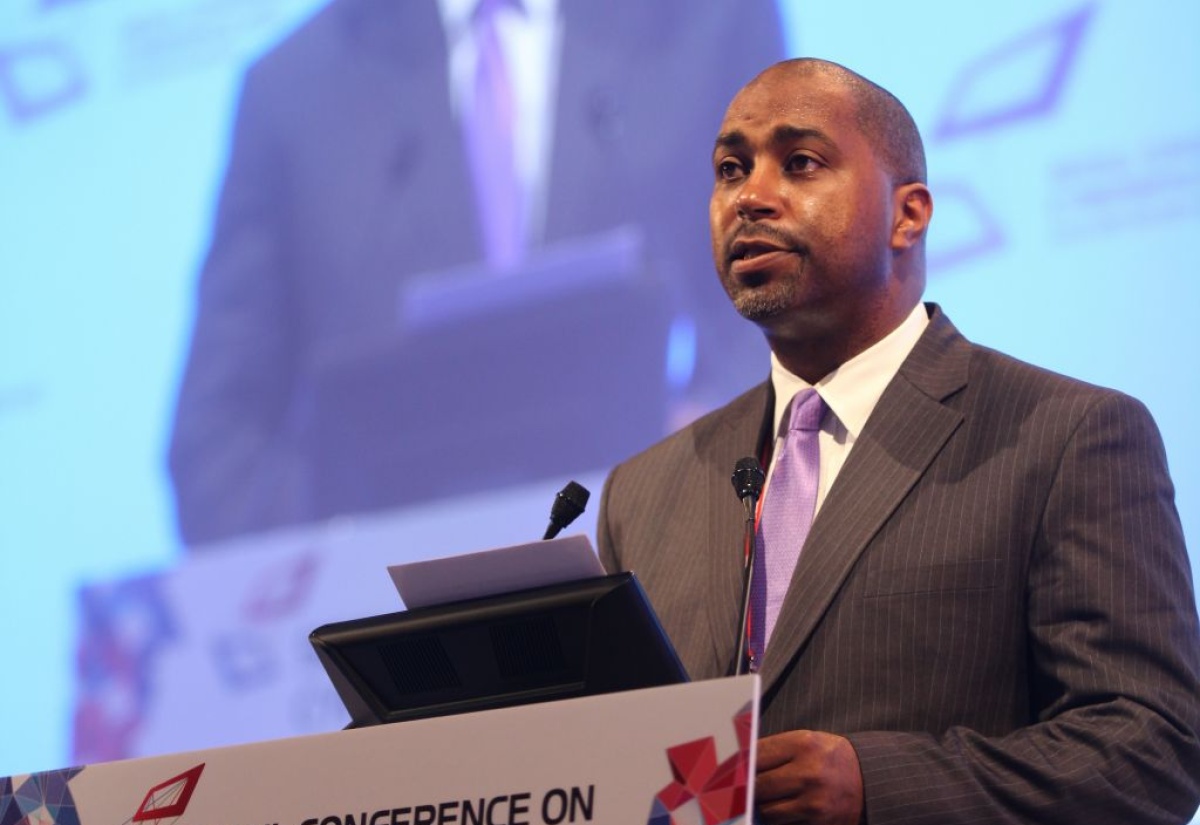Nations Formalize ‘Seoul Framework’ to Combat Cyber Crimes
By: , October 20, 2013The Key Point:
The Facts
- The ‘Seoul Framework’ is predicated on consensus of a need for greater cooperation among developed and developing nations to curtail growing threats to cyber-security.
- The two-day conference was under the theme: ‘Global Prosperity through an Open and Secure Cyberspace: Opportunities, Threats and Cooperation' and brought together more than 1,600 global government officials, civil leaders, and cyberspace security experts.
The Full Story
Jamaica is among 87 countries which have endorsed the newly formulated “Seoul Framework’, which seeks to strengthen global collaboration in efforts to combat cyber-crimes.
Consensus on the agreement was reached during the recent two-day international cyber-security conference hosted in Seoul, South Korea, which was attended by Science, Technology, Energy, and Mining State Minister, Hon. Julian Robinson, who represented Jamaica.
The ‘Seoul Framework’ is predicated on consensus of a need for greater cooperation among developed and developing nations to curtail growing threats to cyber-security.
The Framework is deemed significant as it is the first recognized document outlining discussions on the impact of cybercrimes across the global community.
The document, which will be issued to the United Nations (UN) and Organization for Economic Co-operation and Development (OECD) for use as reference material, will be integral in determining the focus and direction of future discussions on the issue.
In an interview with JIS News, Mr. Robinson underscored the importance of and need for Conventions that will assist in curtailing illicit cyber activities and facilitate investigations and prosecutions, complemented by transnational collaborations.
In this regard, he told JIS News that he urged representatives of developed and developing countries, during the recent conference, to collaborate in an “urgent bid” to reduce and eventually eliminate cyber crime activities, to which all nations are deemed vulnerable.
“My call is for those countries with the know-how and the resources to share that with other countries to ensure that we have a global system which is robust. No-one in the world is safe if in that chain you have weak links, and developing countries with weak systems and a lack of resources are going to be more vulnerable to attacks than developed countries,” he informed.
Mr. Robinson pointed out that training of personnel ranks as, arguably, the priority focus area in efforts to combat cyber crimes. He argued that without adequately trained personnel and the requisite accompanying resources to detect and investigate illicit activities, “then you are going nowhere.”
“This (has to be) at a number of levels. From the level of the Police, who now have a specific unit to tackle cyber crimes, to the level of our prosecutors, the Director of Public Prosecutions’ (DPP) office (that) has a specific unit related to cyber crimes. (Also) at the level of the Judiciary, so that cases brought before the courts can be dealt with, with dispatch. You (also) need to have personnel within government departments and in the private sector who have the expertise to ensure that their systems are well protected,” Minister Robinson underscored.
The two-day conference was under the theme: ‘Global Prosperity through an Open and Secure Cyberspace: Opportunities, Threats and Cooperation’, and was organised by the South Korean Foreign Ministry.
It brought together more than 1,600 global government officials, civil leaders, and cyberspace security experts.


